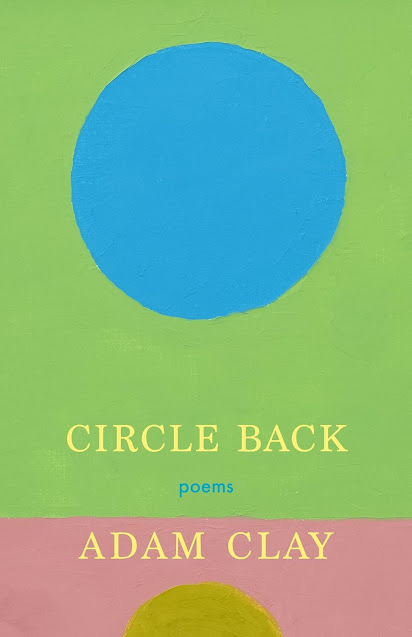Circle Back: poems, Adam Clay
Milkweed Editions, 2024
The latest from Southern Mississippi poet, editor and critic Adam Clay is the collection Circle Back: poems (Minneapolis MN: Milkweed Editions, 2024), following The Wash (Parlor Press, 2006), A Hotel Lobby at the Edge of the World (Milkweed Editions, 2012), Stranger (Milkweed Editions, 2016) and To Make Room for the Sea (Milkweed Editions, 2020). Composed with opening sequence and three numbered sections of shorter poems, Clay seems to structure his poems with an opening upon a small moment that slowly spreads out across the poem, across the narrative; nearly as a water droplet that expands to cover a surface, the narrative stretching slowly outward. “I can still see the deer blood / on the fence and the bone shards / in the drive.” the opening poem, “What Forks Will Splinter Probably,” begins. Clay offers medtiations and observations that meander, move naturally through and across thinking, returning back to points that require return, or those that simply won’t let go. Grief, for example, or thinking upon cemeteries; Clay writes an intimate thinking through a clear, crafted language as straightforward and ambitious as it is deep. Later on in the same piece, writing: “Think of a memorial to stone / in an endless field of gravel. I kept / thinking my life had sharpened down / to what’s surer than a point. But / what to do with the dust of April / in the wake of a year meant to end all / those to come?”
Clay writes on and through grief, a point the collection returns to, echoing throughout; moving outward, and back to that central point, examining, turning over, reconsidering. “Smoke rolls through / the voices singing happy birthday / to you,” the poem “On the Day When No One Was Born” begins, “but it’s not your birthday / or a day for any birth, / really. Where will regret / go at the end of the story?” Clay manages to pack an enormous amount into these poems, seeming to meander but working to weave a collage of highly deliberate examinations through a depth of knowledge, empathy and wisdom, such as the poem “Eternal Things,” that opens with the straightforward-enough lines: “I realized I never wrote a poem / about Italy. My daughter / rock-hounding with a Russian woman / who didn’t speak English.” A few lines later, writing: “I realized / I never wrote a poem about a lot of things. / The world is ending, and we’re priced out / of what we need.” How do these poems move so cleanly down the page, so easily across such generous and intimate conclusion?
rob mclennan’s collection of short stories, On Beauty (University of Alberta Press) will appear in fall 2024. His next poetry collection is the book of sentences with University of Calgary Press, the second in a trilogy of collections that began with the book of smaller (University of Calgary Press, 2022).



